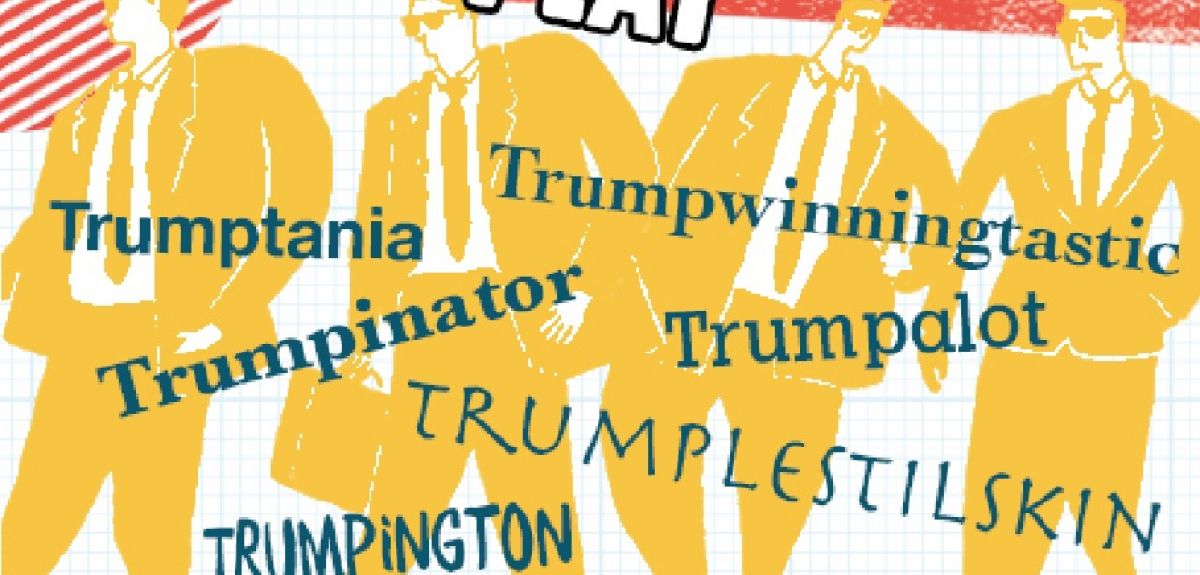
'Trump' revealed as Children's Word of the Year
Politics, elections, Donald Trump, and Pokémon GO are just some of the events, people, and subjects that influence British children’s creativity and use of language, says a report published today by Oxford University Press (OUP).
Following OUP's analysis of the 131,798 fabulously inventive, funny and politically astute short stories for the 2017 BBC Radio 2 Chris Evans’ Breakfast Show’s 500 Words competition, a wealth of fascinating insights into the lives of British children and their imaginative use of English have emerged.
The Children’s Word of the Year is trump, picked because of its significant increase in use (a total rise of 839 per cent on 2016) by entrants writing in this year’s competition and the sophisticated way in which children used it to convey humour and satire, and evoke powerful descriptive imagery.
Every year children show a keen interest in contemporary affairs and world events from sinkholes and the London Olympics to the Ebola crisis, refugees and Tim Peake’s spacewalk. This year, Donald Trump took office as President of the United States in the same week that 500 Words launched.
Trump is mentioned in a wide variety of contexts, from the US elections and politics, to tales of space, aliens, and superheroes, giving expression to children’s creativity, playfulness, and humour. Children also use the noun to invent new character names including Boggle Trump and Snozzle Trump.
Vocabulary associated with the US presidency was far more prevalent in 2017 than in 2016, including president, America, wall, Hillary Clinton, White House, Trump Towers, Obama, Mexico and Putin. Displaying an ear for Trump’s particular use of words and catch phrases, one entry stood out for its ability to brilliantly capture the rhythm of his speech. In Donald J Trump Goes to the Moon, a 12-year old girl wrote: “10... 9...8 ‘my hair is so amazing’...7. ‘And real’. 6... 5 ‘I am going to make the moon great again!’. 3... 2...1 blast off!!”
Political vocabulary is a notable area of growth in 2017, showing children’s engagement with the news and media. The words politics and political show an increase of 115 per cent and 78 per cent respectively since last year, and an analysis of a cluster of around 30 words relating to contemporary politics (for example president, vote, election, campaign) shows a 58 per cent increase in frequency since 2016. New words and phrases in this year’s stories include Brexit, Article 50, fake news, and alternative facts.
Vineeta Gupta, Head of Children’s Dictionaries at Oxford University Press, says: 'This year, the stories demonstrate creativity, style and wit, all underpinned by a sophisticated use of grammar and language. From humorous punning to creating their own words, children have played and experimented with language with impressive results. The stories have not only provided us with infinite entertainment, but also contributed to language research for children’s dictionaries. As well as this, 500 Words has led to academic research at Oxford University which will support teachers and schools.'
Chris Evans, presenter of BBC Radio 2's Breakfast Show, said: 'The OUP’s research is always such a fascinating insight into the minds of children today. This year’s analysis reveals just how tuned in they are to what’s going on in the world. It’s so inspiring to see how they use language so creatively, having fun with words, using humour and bringing them to life through their wonderfully unconstrained imaginations.'
500 Words is the BBC Radio 2 Breakfast Show’s short story writing competition for children aged 5-13, launched by Chris Evans back in 2011. Earlier this year, children were invited to compose an original work of fiction, using no more than 500 words.
OUP analysed the entries using its Oxford Children’s Corpus—a large electronic database of real and authentic children’s language—the only one of its kind in the world. It contains language written for children (54 million words) and also language written by children (284 million words).